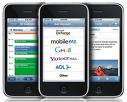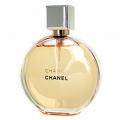By Neil Boorman CS.Q 译
You’re dressed up to the nines, you’re standing in an impossibly glamorous room, your hands are sweating in anticipation and the excitement is almost unbearable. But you’re not waiting to meet the Queen. You’re simply spending a week’s wages on a designer jacket you can’t afford and don’t really need.
穿着讲究的你,站在一个极其耀眼的房间里,思忖着,手心直冒汗,激动的心情几乎难以抑制。你可不是等着觐见女王,只不过是要花尽一周的薪水买一件名师设计的夹克,而这件夹克你根本买不起也并不十分需要。
If this sounds remotely familiar, the likelihood is you’re a brand addict.
如果这样的情形听来似曾相识,那你有可能是一个品牌的拥趸了。
 How exactly does one become obsessed with brands? As a reformed addict myself, I am, unfortunately, an expert on the subject. I suffer from a recurring compulsion towards the labels on consumer goods. If you and I met in the street, I would automatically scan the logos on you and, based on their status, judge the type of person that you were.
How exactly does one become obsessed with brands? As a reformed addict myself, I am, unfortunately, an expert on the subject. I suffer from a recurring compulsion towards the labels on consumer goods. If you and I met in the street, I would automatically scan the logos on you and, based on their status, judge the type of person that you were.
人们究竟是怎样陷入对品牌的迷恋的呢?作为一个改过自新的过来人,很不幸,我可是这方面的专家。我苦于一次又一次抑制不住对产品上的商标的冲动。如果你我在街上相遇,我就会不由自主地扫视你身上的牌子,根据它们的档次判断你是个什么类型的人。
If you and I had met last year, you would have spotted the ostentatious logos that I sported—it was paramount that my brands conveyed the right message about who I was to anyone who cared to look. With my limited-edition trainers, luxury brand wallet and top-of-the-range Mac computer, the message of who I thought I was spelled out: progressive, creative and cool. But, in fact, it increasingly said: desperate, miserable and poor. Without these props, I would have been lost. I was fiercely loyal to a small number of brands—Adidas and Apple in particular—to the point that I could not contemplate buying products made by their rivals. My spare time was devoted to tracking down new branded goods. I once travelled to New York simply to buy a pair of Prada shoes that had sold out in the UK.
如果你去年遇见我,你会注意到我身上那些故意亮出来的惹人注目的商标——我所拥有的品牌应向任何有兴趣注意我的人传递正确的信息以表现出我是怎样的一个人,这一点极为重要。我那限量版的运动鞋、昂贵的名牌钱包、最新款的苹果电脑,我曾认为它们很清楚地为我传递出一个进取、有创意又酷的形象。但事实上,这个形象却愈发表现出:这是个绝望、不幸又可怜的人。失去了这些行头,我就会感到迷失。我曾忠心拥戴一小部分品牌——特别是阿迪达斯和苹果——到了根本不会考虑买它们竞争对手产品的地步。我的空余时间都用来搜寻新的品牌产品。有一次,我专门跑到纽约只是为了买普拉达的一款鞋子,因为这款鞋在英国已经买断了货。
Obsessive shopping is traditionally associated with women, but a rise in the importance of male grooming has dragged men into the shops.
I felt incredible pressure to conform to the advertised ideals of the 'new man'. Faced with such pressure to maintain a flawless public image, a brand can become your 'friend' by helping you to achieve a standard of beauty.
But it is the same brand that enforces this impossible standard in the first place.
Consumer debt in the UK has reached an all-time high of £1 trillion. Meanwhile, advertising spend recently passed the £19 billion mark. With the average person being exposed to 3,000 adverts a day, it is no coincidence that 80 per cent of Britons admit to regularly overspending.
More than a million people in the UK suffer from compulsive shopping disorder, often a symptom of the low self-esteem that I was later diagnosed with.
A drug is being tested in the UK that promises to wean people off their reliance on shopping in the same way it has halted other addictions such as gambling.
My own addiction to labels led to an increasingly expensive lifestyle. At the age of 19, I plunged into debt within months of landing my first job as a TV production assistant.
By 30, I owed a total of £19,000. The crashing highs and lows of spending made me feel increasingly anxious and depressed, but I carried on shopping to cheer myself up - a classic love/hate cycle of addiction.
The anxiety reached a climax in 2006 when I caught myself inventing excuses to escape the office and go shopping.
By this time, I was fully immersed in brand culture as editor of a lifestyle and fashion magazine, a world in which it is particularly important to play the game.
I checked myself into therapy aged 31.
During my sessions, I recalled being initially unpopular at school because I didn't wear the right trainers or carry the right sports bag.
I pleaded with my parents to buy me these things so that I could become part of the cool set. They refused on grounds of cost, but this served only to make the brands more enviable to me.
During therapy, I came to realise that this tug of war sparked my lifelong habit of obtaining brands.
At all costs. I concluded that to break with the past, I had to destroy my previously branded life in the most violent way I knew how.
 The first symbolic act was to burn my favourite pair of trainers, given to me at my first meeting with the brand managers at Adidas.
The first symbolic act was to burn my favourite pair of trainers, given to me at my first meeting with the brand managers at Adidas.
The level of anxious heartache that I felt, taking a match to them, was excruciating but it only served to remind me how deep the obsession had become. After all, it was only a pair of shoes.
The main event followed six months later, with a public bonfire in Central London. Twenty years of designer shopping went up in smoke before an audience that was largely unsympathetic to my cause.
Thousands of people posted negative comments on websites, appalled by the apparently casual destruction of valuable goods.
My partner Juliet was a rock of support, however, defending me against mounting criticism even though I was returning our lifestyle to the Dark Ages, banning TV, branded cosmetics and even supermarket food from the home.
Post-bonfire, I suffered a terrible gnawing emptiness. It took six months for me to recover from the loss, helped enormously by my therapist.
Self-confidence, she told me, came from accepting the person that I really was, not covering up with a blanket of brands.
Practical life brand-free was just as tough. Banned from the supermarket, I had to discover local markets and independent shops for food. I learned how to make my own cosmetics and realised there were alternatives to Cif (baking soda and vinegar are a brand-free boy's best friend).
My new wardrobe, bought mostly from online Army surplus and market stores, is nowhere near as flash, but I can buy ten non-branded T-shirts for the price of one on the rail at Selfridges.
Conversation with friends can sometimes be fraught (they are mindful to avoid the subject of shopping), while my knowledge of the zeitgeist is spectacularly poor, not having watched television in 12 months.
I still lust after the lifestyle, but a return to brand culture isn't an option. As any reformed addict will tell you, there is no moderate halfway house.
Being a child of the 1970s, I am the product of a generation that has been sold to from birth, bombarded by TV advertising and billboards.
There exists no brand powerful enough to make us purchase against our will, but there are plenty - Anya Hindmarch and PlayStation to name two - that persuade us to sleep overnight on the pavement for 'must-have' products.
And it's all down to very clever and subtle advertising campaigns, or "emotional branding".
It is this that triggers us to spend our money on new versions of things that we usually already own, like an 'it' bag. Products are sold not on the basis of what they do, but how they make us feel.
As Kevin Roberts, CEO of Saatchi & Saatchi, who says we are 80 per cent emotional and 20 per cent rational, e xplains: "For great brands to survive, they must create loyalty beyond reason."
A new study out this month suggests that continual exposure to brand messages has a very real psychological impact.
"Buyers do not only consume the actual goods advertised," says Professor Helga Dittmar of Sussex University's social psychology unit, "but also their symbolic meanings - successful, happy, attractive, glamorous - thus moving closer to the ideal identity portrayed by media models.
"It not only presents unrealistic images which pose a problem for many people, producing self-doubt, but it also presents the supposed solution: buy the product and it will get them closer to these ideals.
"Immense profits are to be made from people's misguided search for identity and happiness through consumption."
By limiting the volume and frequency of advertising to children, the Government has acknowledged the potentially negative influence of excessive branding. But adults have no such protection.
Having de-branded so publicly myself, every aspect of my life has been transformed - sometimes for the worse.
I don't get much work as a fashion journalist any more, and the invites to parties, along with promotional gifts, have dried up.
Ironically, the one new brand I've created is the Non-Branded Neil, and I now report on labels from the other side of the fence.
More importantly, I face a new set of challenges with my newborn baby boy Dexter.
Before long, he'll be asking me for branded football boots, mobile phones and computer games. Will I give in to pester power, or will I deny him the brands that his mates take for granted?
Right now, I honestly cannot be sure.
